We were in Saint-Malo, France, for the 3rd Annual Workshop on Multi-modal Affective and Social Behaviour Analysis and Synthesis in Extended Reality (MASSXR) on 8 March 2025. Held as part of the 32nd IEEE Conference on Virtual Reality and 3D User Interfaces (IEEE VR), the half-day workshop at Le Grand Large brought together a community of around 35-40 researchers and practitioners.
Representing fields spanning cybersecurity, human-computer interaction, computer graphics/animation, multi-modal machine learning, AI, data privacy, and socio-technical studies, attendees convened to tackle a crucial and increasingly relevant topic: the state of security in Extended Reality (XR). The discussions centred on identifying future directions and exploring opportunities to boost system robustness and, critically, enhance user trust in XR technologies.
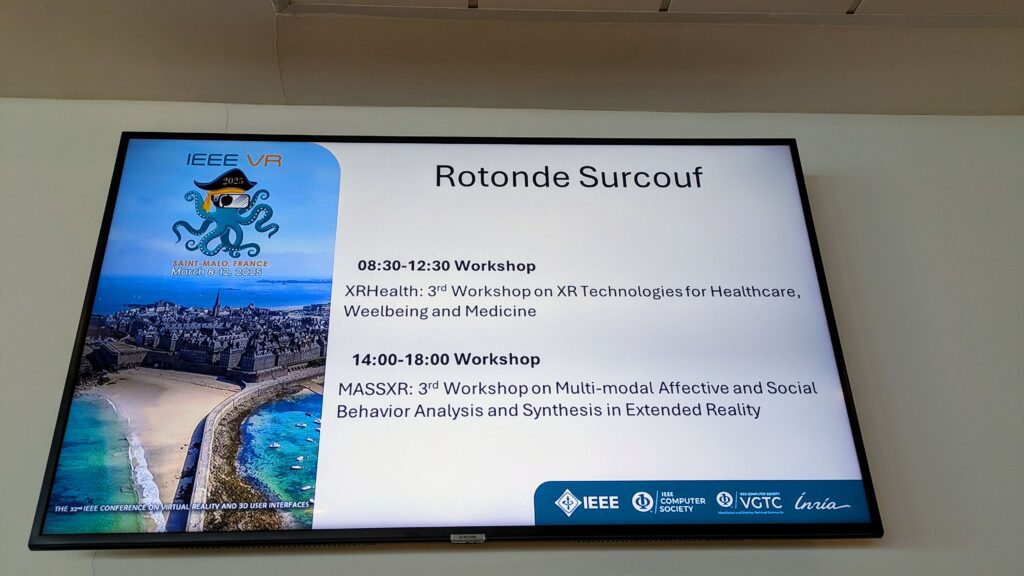
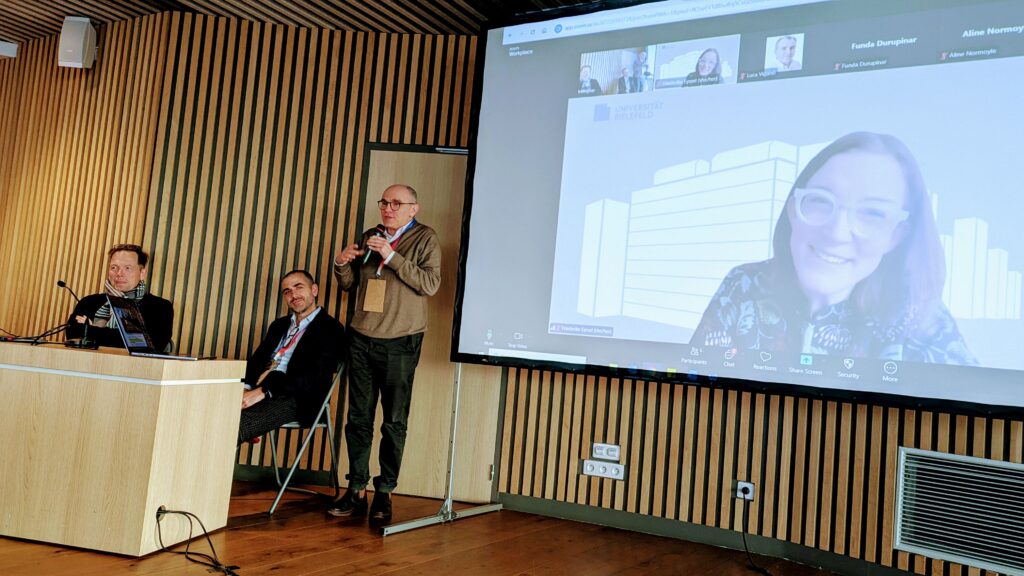
The workshop showcased the latest advancements in the field with the presentation of four insightful research papers. These presentations highlighted the innovative work being done to address the unique challenges and opportunities presented by XR.
As keynote speakers, the workshop had our SERMAS project coordinator, Lorenzo Sabattini, from the Università degli Studi di Modena e Reggio Emilia, Italy, presenting a talk on “Robots Teaming with Robots and Humans: Social Acceptance and Coordinated Control.” His talk delved into the complexities of human-robot collaboration, the factors influencing social acceptance of robots, and the strategies for achieving effective decentralized control in multi-robot systems. Friederike Eyssel from Bielefeld University, Germany, offered insights into “Trusting Social Robots.” Her talk focused on the critical aspects of building trust in human-robot interaction, emphasising the vital roles of privacy and transparency, supported by compelling psychological and experimental research. These concepts have significant implications for XR environments, where robots can be seamlessly integrated to enhance user interactions and immersive experiences.
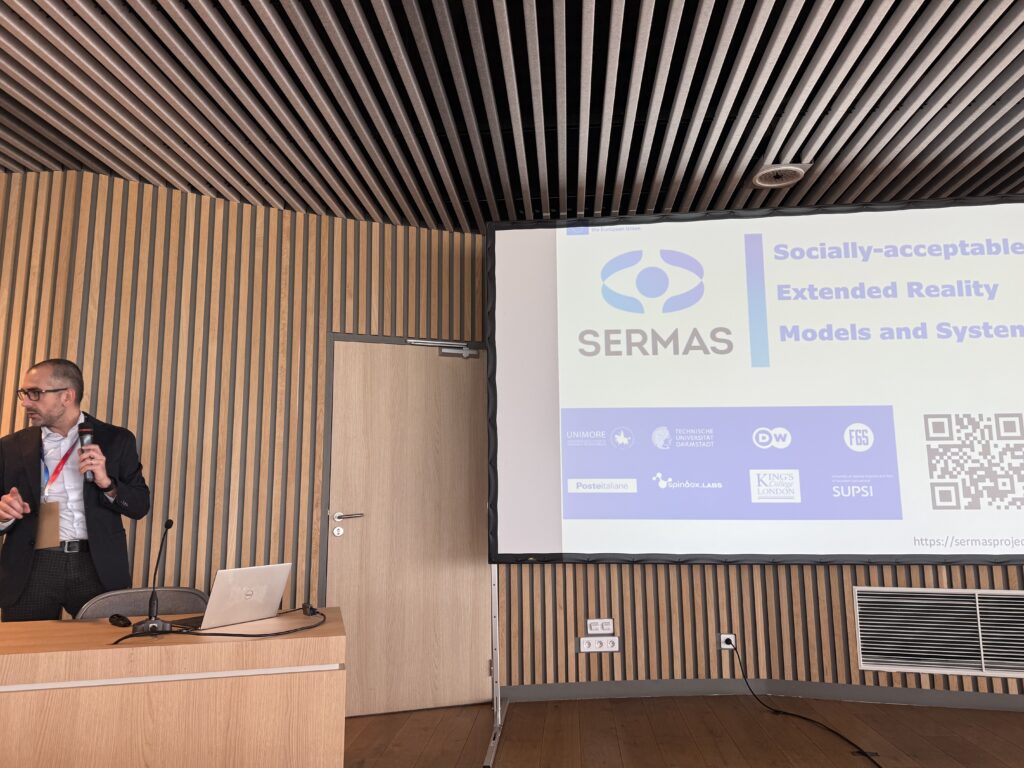
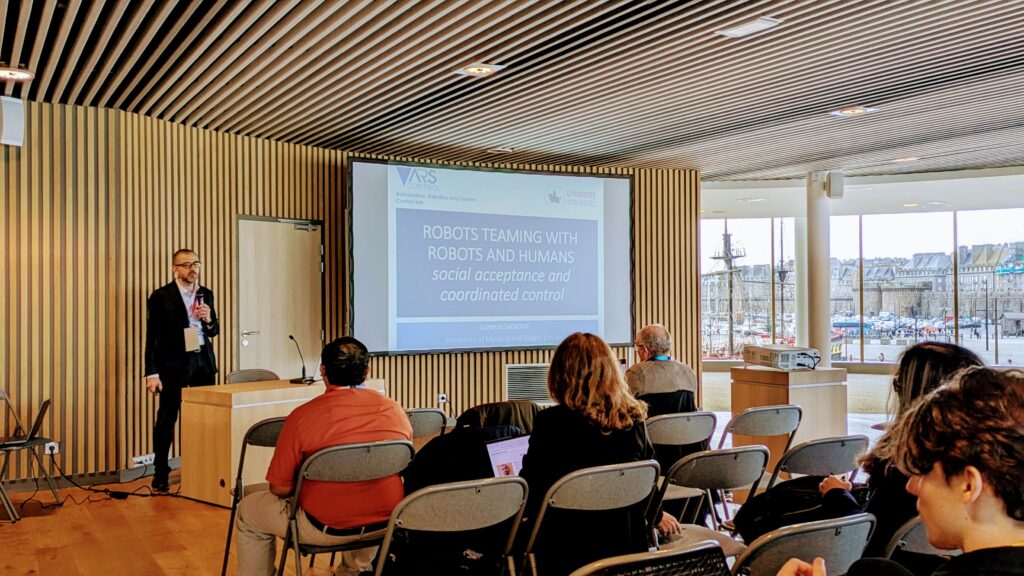
The keynote presentations paved the way for a panel discussion that engaged the speakers, Marc Latoschik from Würzburg University, the workshop organisers, and active participation from the audience. This interactive session served as a platform to examine the current landscape of the field, identify significant challenges that need to be addressed, and explore the exciting emerging opportunities within XR. The debate focused on some important questions, including the discussion on how advances in AI, robotics, and understanding emotions are changing our trust in digital interactions. There were also discussions about the balance between technology being useful and becoming intrusive. Finally, the group debated at whether XR could be a strong tool for cybersecurity, particularly in areas like spotting threats, improving logins, and making security training more effective.
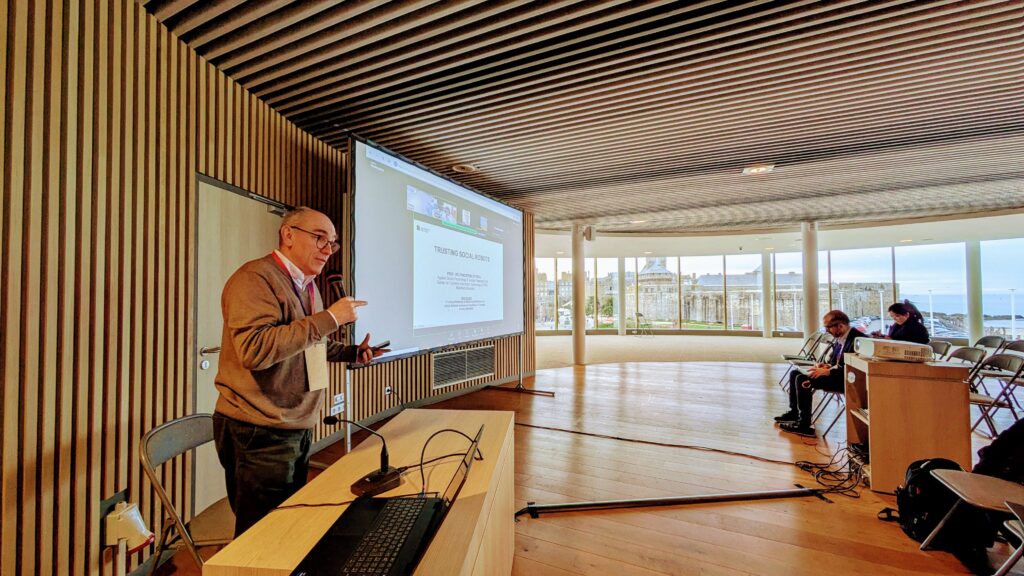
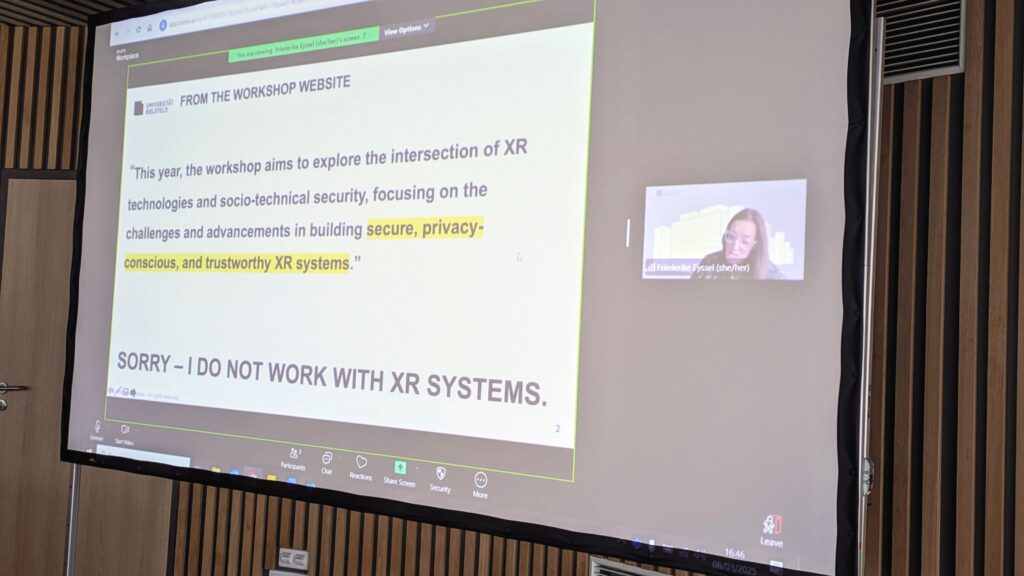
Beyond the formal presentations and discussions, MASSXR 2025 fostered a strong sense of community through a dedicated coffee break. This provided an excellent opportunity for attendees to network not only with fellow workshop participants but also to forge connections with researchers, developers, and practitioners attending other events within the main IEEE VR 2025 conference that day. These informal interactions are often where new collaborations and ideas are born.
The MASSXR 2025 was organised by our project partners from Kings College London in support of SERMAS and Innovate UK, and in partnership with Centrum Wiskunde & Informatica (CWI), TU Delft, Utrecht University, Purdue University, University of Massachusetts Boston, and Bryn Mawr College.
